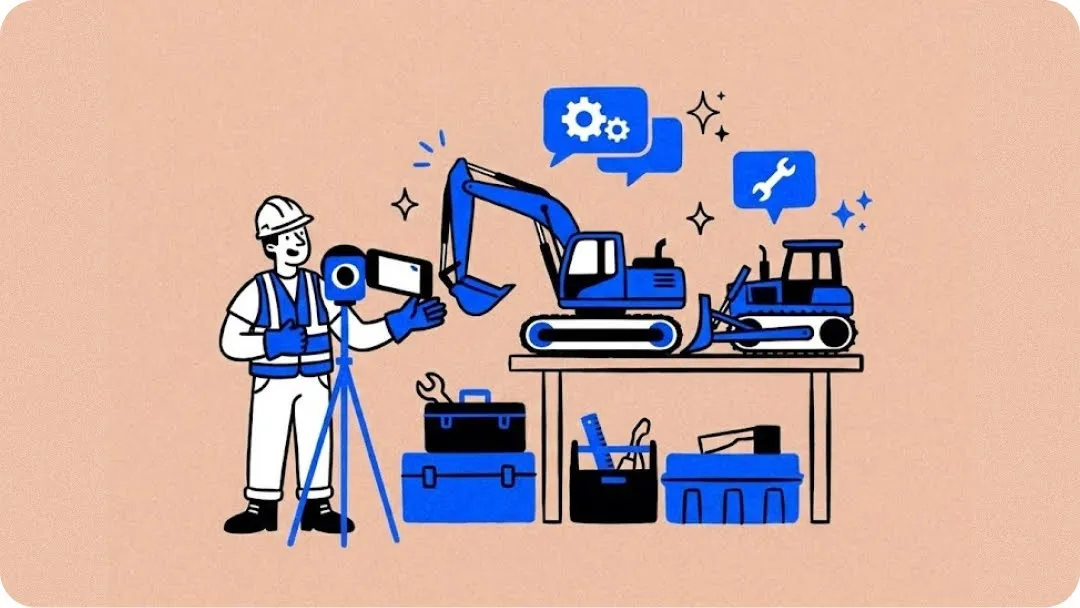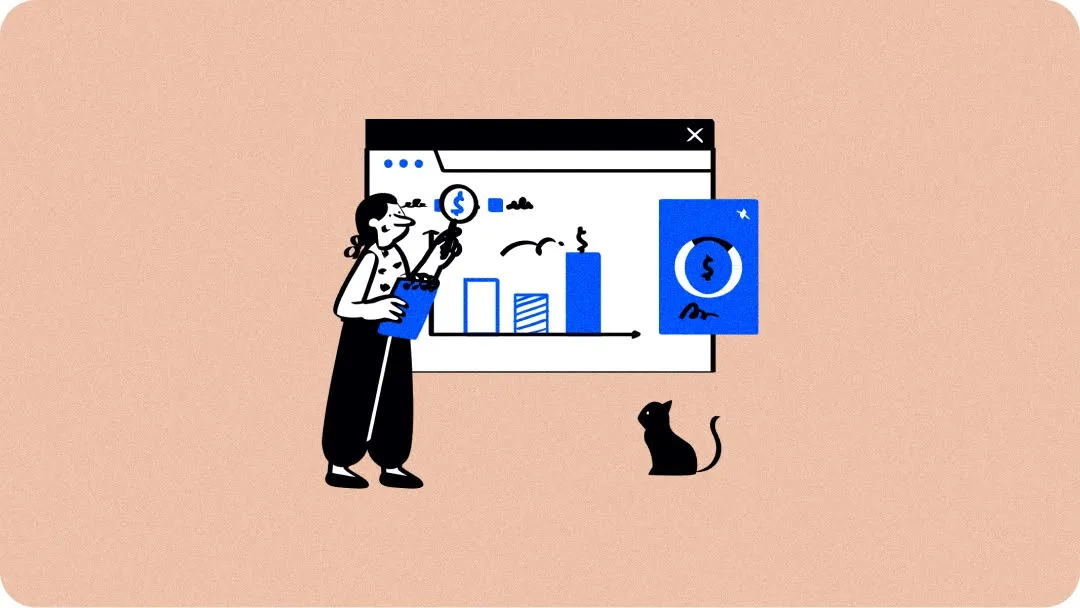TL;DR
- SEO in 2025 moves beyond keyword stuffing to focus on user intent and AI-optimized strategies.
- Google’s algorithms now prioritize context, relevance, and helpfulness, not just keywords.
- Success depends on creating user-centric, authoritative, and context-aware content.
- Long-tail and semantic keywords are crucial for matching evolving search behaviors, especially voice and generative AI searches.
- Building E-E-A-T (Experience, Expertise, Authoritativeness, Trustworthiness) is essential, especially for YMYL topics.
- Structured data and schema markup help search engines understand your content better.
- Hyperlocal SEO is vital for U.S. businesses targeting nearby customers.
- AI tools can accelerate SEO tasks, like content creation and keyword research, but require human oversight for quality and accuracy.
- To stay competitive, align all SEO efforts with search intent, user needs, and technical/local SEO best practices.
You’ve done the usual SEO playbook, updated your blogs, added keywords, fixed technical issues, and yet, traffic is flat. Leads aren’t improving either. It’s not that SEO has stopped working; it’s that how SEO works in 2025 has changed.
Today, search engines rely on AI to understand context, intent, and content quality far better than they did even a year ago.
84% of marketers now use AI to align their content with what users are searching for, while 62% use it to analyze data and improve performance. So if you’re still chasing rankings with keyword-stuffed posts or generic content, you're not reaching the audience that matters most.
This blog dives into what SEO in 2025 really looks like: how search intent is evolving, why E-E-A-T and structured data matter more than ever, and which strategies are actually driving results.
If you want to be found by the right people at the right time, let’s ensure your content appears where it matters.
What Is SEO Strategy?

An SEO strategy is your game plan for making your business visible in search results, especially when your ideal customer is looking for solutions like yours. It’s not just about ranking on Google.
SEO strategy in 2025 is about visibility, not vanity rankings. If your site doesn’t surface in AI-powered search results, or if your content isn’t customised to intent, you’re invisible.
So, let’s explore the top SEO strategies and trends driving real results in 202 that will help you stay ahead of the curve.
1. Upgrade Your Keyword Strategy for the AI-First Web
SEO isn’t just about ranking for popular keywords; it’s about matching user intent and making your content AI-readable. Search engines now rely on machine learning to understand context, relevance, and language patterns far beyond exact-match phrases.
Tools like Gushwork remain essential for uncovering how your audience searches, including local phrasing like “best fitness classes in Phoenix.” Keywords still connect your content to real searches, but only when they're backed by intent data and relevance.
Why Long-Tail & Semantic Search Matter in 2025?
With voice search and generative AI changing how people search, keyword strategies have to evolve, too.
- Long-tail keywords (like “affordable eco-friendly cleaning services in Los Angeles”) are more specific, match user intent closely, and tend to drive higher conversions.
- A Reddit SEO practitioner put it perfectly: “Long-tail keywords are always my best performers. They bring in traffic and reach users searching for something super specific, which is great for conversions, especially as we move into generative search.”

- Semantic search goes beyond exact match, helping your content rank for related queries by covering topics in depth (e.g., “fix leaky faucet” also connects with plumbing repair).
Together, these strategies build topical authority and make your content easier for AI-driven search engines to understand.
Strong keywords only take you so far. To stay ahead, you also need to understand how Google’s ever-evolving algorithm evaluates your content.
2. Decode Google's Algorithm Updates
Google's algorithms are constantly refining, becoming more sophisticated with each update. For SEO in 2025, recognizing their core philosophy, user intent, and content relevance is paramount.
Google's updates now focus intensely on the why behind a search, not just keyword matching. Anticipate algorithms that will:
- Deepen Intent Understanding: Google will better distinguish between informational ("how to remove rust stains") and transactional queries ("buy rust remover spray"), requiring your content to align precisely.
- Prioritize Helpfulness: Google explicitly rewards "helpful content" that solves user problems. Thin, unoriginal, or manipulative AI-generated content will continue to be demoted.
As of a December 2024 core update, Google emphasizes "authenticity, relevance, and substance."
Keeping up with algorithm changes is essential, but AI gives you the power to act on them faster and smarter.
3. Leverage AI Across Your SEO Workflows
By 2027, over 90 million U.S. adults will use AI for search, up from just 13 million in 2023. That shift is already underway in 2025. If you're not using AI to streamline and scale your SEO, you're falling behind.
Here’s how you can harness AI to stay ahead:
Make Search Personalization Work for You
AI helps you deliver smarter, more relevant experiences:
- Predictive search anticipates what your users want next.
- Chatbots and recommendation engines personalize every step of their journey.
- Behavioral targeting serves up content and ads based on how visitors interact with your site.
Speed Up and Scale Your SEO Workflow
You don’t need to sacrifice strategy for speed; AI helps you do both:
- 52% of marketers already say AI has made their SEO workflows faster and more efficient.
- Use tools like Copy.ai to create blog posts, email copy, and repurpose content across platforms, and Gushwork to automate keyword research, generate SEO-optimized content, and analyze SERPs, fully integrated with tools like Google Search Console and Ahrefs.
Use AI Responsibly to Create High-Quality Content
Yes, AI can now help produce content that ranks; 13% of top-performing pages are AI-generated. But ranking well still takes human strategy.
- Let AI handle outlines, drafts, and metadata.
- Focus your time on refining the message, ensuring accuracy, and infusing real expertise.
- For sensitive topics like health, finance, or legal advice, run every piece through a human-led quality check.
AI tools boost efficiency, but don’t forget who you’re ultimately optimizing for: the human on the other side of the screen.
4. Adopt a User-Centric SEO Approach
If your content doesn’t match what real people are searching for or deliver a great experience, they’ll bounce, and search engines will notice. In 2025, SEO is all about putting the user first.
So, how to shift your strategy to match this new reality?
Focus on the Person Behind the Query
Search engines now prioritize intent over exact keywords. That means you need to go beyond basic optimization and speak directly to your audience’s needs.
- Think problem-solution: A Miami salon shouldn’t just rank for “hair color correction near me”; you also need content like “how to fix brassy blonde hair at home.”
- Google’s AI understands natural language, so focus on answering the full question, not just stuffing keywords.
Match Intent and Context, Not Just Queries
You can’t treat all searches the same. Understand why someone’s searching, and where they are:
- Informational: “Benefits of solar panels”
- Transactional: “Buy solar panel installation Dallas”
- Navigational: “Texas Electric Company login”
- Commercial investigation: “Best solar panel companies in Texas reviews”
Deliver Content People Actually Want to Read
User experience is now a ranking factor. You need to make it easy and enjoyable to consume your content:
- Be comprehensive: If you’re a California accounting firm, create a full guide like “Tax Deductions for Small Businesses in 2025.”
- Keep it readable:
- Use short paragraphs
- Include H2s and H3s
- Add bullet points and bold takeaways
- Use visuals: Images, infographics, and videos help people engage and stay longer.
- Prioritize performance: Your site must be fast, mobile-friendly, and meet Google’s Core Web Vitals.
Guide Users With Clear CTAs
Tell your visitors what to do next. Whether it’s booking an appointment, getting a quote, or downloading a guide, a clear Call-to-Action moves them forward.
Understanding the user is step one. Next, you need to demonstrate your expertise and credibility through well-structured content and authoritative sources.
5. Optimize Content and On-Page SEO for Authority
If you want to win visibility in AI-powered search, you need more than just keywords; you need credibility. Content still rules, but only if it’s authoritative, well-structured, and built for real users. Here’s what you can do:
Create High-Quality, Authoritative Content
With AI-generated content flooding the web, Google now prioritizes content that feels real, reliable, and relevant:
- Be original: Don’t recycle what’s already ranking. Offer fresh insights, like a landscaping company creating regional care guides tailored for Texas or Illinois.
- Make it actionable: Give readers something useful. For example, share “DIY home staging tips for Florida sellers” with step-by-step checklists.
Build E-E-A-T Into Every Page
Google uses E-E-A-T, Experience, Expertise, Authoritativeness, and Trustworthiness, to decide whether your content deserves to rank, especially for sensitive topics like finance, health, or safety.
Here’s how you build it:
- Experience: Share firsthand insights. A CPA explaining the tax software they use will outrank generic summaries.
- Expertise: Highlight credentials, portfolios, or years in business.
- Authoritativeness: Publish consistently, earn mentions from trusted sites, and showcase niche knowledge.
- Trustworthiness: Use HTTPS, list sources, and include detailed author bios and real customer reviews.
These techniques ensure your content is valuable to users and easily discoverable by search engines.
6. Dominate Local Search
If you run a local U.S. business, like a gym, salon, or cleaning service, your growth depends on showing up when nearby customers search. In 2025, Google’s AI-driven results will lean heavily on location, personalization, and context. You need to optimize for where your audience is right now, not just what they’re searching.
Keep Your Local Listings Accurate and Engaging
Your Google Business Profile (GBP) is your digital storefront. Treat it like prime real estate:
- Complete your profile: Add business hours, services, photos, and a keyword-optimized description.
- Post regularly: Share events, promos, and community updates to stay fresh in local search.
- Get (and respond to) reviews: Positive, detailed reviews help your rankings, and Google’s AI pulls those into results snippets.
- Ensure NAP consistency: Your Name, Address, and Phone number must match exactly across directories like Yelp, Apple Maps, and Bing.
- List in local directories: Build legitimacy with citations from chambers of commerce, local blogs, and community platforms.
- Optimize for voice: Use natural language like “Who installs ceiling fans near me?” or “Where’s the best pet-friendly hotel in Austin?”
Embracing these local strategies helps U.S. businesses cut through the noise and connect directly with their most valuable customers, those right in their neighborhood.
How Gushwork Drove 39 K+ Visitors for Dashtoon with SEO

One of the best examples of SEO done right? Dashtoon, an AI comic creation platform that empowers creators to publish high-quality, illustrated stories in minutes, no design skills needed.
From day zero, Dashtoon made SEO a core part of its growth strategy. Instead of relying on generic content, they focused on high-intent landing pages, niche audience targeting, and visually rich pages built around user needs.
Gushwork’s SEO Strategy for Dashtoon:
- Created niche landing pages for high-demand queries like AI Comic Generator and AI Storyboard Maker
- Built authority content for both creators ("AI tools for comic artists") and readers ("Best romance manga" and "Bato.to alternatives")
- Leveraged visual search intent by showcasing image generation on every key page
- Optimized for E-E-A-T and structured FAQs for readability and rankings
Results:
- Organic traffic grew from 103 to 39.6 K+ monthly visitors
- Impressions soared from 7.87K to 1.09 million
- Ranked #1 for 48 non-branded keywords, including Mangareader alternative, and Anime comics creator
Dashtoon’s journey shows that starting SEO early and doing it right pays off exponentially. In 2025, that’s the edge brands need.
Wrapping Up
SEO in 2025 isn’t about chasing rankings; it’s about becoming discoverable in the moments that matter. With AI reshaping how people search and how content is surfaced, the real winners are those who focus on intent, expertise, and adaptability.
That means optimizing not just for Google, but for AI-powered engines, voice assistants, and generative search tools. It means building with E-E-A-T, refining your content for humans and machines alike, and leaning into long-tail, semantic keywords that match real-world questions.
If you want to be the brand that shows up with answers, not just links, this is your moment to lead.
At Gushwork, we help growth-focused businesses build SEO strategies that attract the right traffic and convert it into results. From technical audits to content that ranks, our team can pinpoint exactly what’s working and what’s not. Let’s map out where your content stands and where it needs to go next.
Book a free strategy call today, and take the first step toward visibility that lasts.

















.webp)


.webp)








.webp)
.svg)


.svg)
.svg)
.svg)




.svg)


